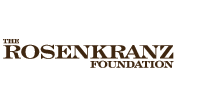
Rosenkranz Foundation’s Translation Project Promotes Democratic Values
September 14, 2015
Since 1985, the Rosenkranz Foundation, under the guidance of Robert Rosenkranz, has worked to encourage intellectual diversity in the realms of public policy, higher education, and the arts. The Rosenkranz Foundation provides support to think tanks, educational institutions, art exhibitions, and other catalysts of research and innovation. In pursuit of this goal, the Rosenkranz Foundation’s Translation Project offers financial support to organizations that translate and distribute important political and philosophical texts.
One of the Rosenkranz Foundation’s past initiatives, the Translation Project, aimed to combat global terrorism by countering its ideals. The Rosenkranz Foundation established the Translation Project in 2006 and, in February 2007, awarded its first two grants to the Abdorrahman Boroumand Foundation and the Cato Institute. Both nonprofits seek to uphold the ideals of democracy and individual liberty. Expressing the Rosenkranz Foundation’s eagerness to advance these values, Robert Rosenkranz contended that “access to writings that promote the rule of law, free markets, tolerance, and democracy will help moderate Muslims win the war of ideas” against extremism.
Based on the belief that the war on terror is—at its core—a war of ideas, the initiative seeks to overcome the radical, intolerant ideologies of Islamic extremists by promoting the values of democratic belief systems. By providing access to groundbreaking historical writings, the Translation Project aimed to introduce readers throughout the Middle East to ideas that form the cornerstones of democratic society, such as personal liberty and civic engagement. Other concepts in the translated texts include property rights, the rule of law, and freedom of the press and religion. By disseminating these ideas, the Translation Project seeks to inform and support political moderates around the world, inspiring them to work against radicalism in order to achieve liberty.
As noted by Lamp of Liberty director and Cato Institute senior fellow Tom G. Palmer, the Rosenkranz Foundation’s Translation Project “came at an important time when Arab societies face a choice: to renew Arab culture through freedom, or to fall into the abyss of intolerance and violence.” Together through this unique initiative, the Rosenkranz Foundation, Abdorrahman Boroumand Foundation, and the Cato Institute provided a positive alternative to oppressive regimes, using the power of ideas to foster acceptance, political moderation, and reverence for human rights.
About The Abdorrahman Boroumand Foundation
Operating out of its headquarters in Washington, DC, the Abdorrahman Boroumand Foundation translates the works of writers such as Locke, Milton, and Voltaire into Farsi. By distributing these texts to Iranian readers, the organization provides insight into historical struggles against despotism and intolerance, demonstrating that both can be overcome.
The Abdorrahman Boroumand Foundation is a non-partisan, nonprofit organization that works to promote and protect human rights and democratic values in Iran in a variety of other ways as well. Named in honor of the late Iranian lawyer and pro-democracy activist Dr. Abdorrahman Boroumand, ABF uses research, documentation, education, and public outreach to raise awareness of Iranian human rights issues and seek justice for the victims of inequality and intolerance. In addition to its efforts to translate and distribute written works that promote individual freedom, the nonprofit’s projects have included traveling exhibits and memorials that shed light on state violence and oppression in Iran. The foundation draws over 80 percent of its financial support from private entities such as the Rosenkranz Foundation, and receives additional funding from individual donors and the National Endowment for Democracy.
About The Cato Institute
At the same time, Washington, DC-based public policy think tank the Cato Institute offers access to similar writings via its Lamp of Liberty initiative, which provides Arabic translations of the works of Milton Friedman, Hernando de Soto, Adam Smith, and other noteworthy political philosophers. Known in Arabic as “Misbah Al Hurriyya,” Lamp of Liberty has produced translations of texts spanning over a century of political thought, including Ludwig von Mises’ Economic Policy (2005), On Liberty by John Stuart Mill (1859), and F.A. Hayek’s The Road to Serfdom (1944). The Lamp of Liberty initiative has also syndicated articles in the Arab media, produced an interactive map detailing economic freedom around the world, and created videos of policy debates and relevant interviews.
The Translation Project was part of the Cato Institute’s larger Center for Promotion of Human Rights, which facilitates additional translation projects in languages including Kurdish, Persian, Spanish, and Russian. Through the Lamp of Liberty initiative and other divisions, such as the Center for Constitutional Studies and the Center for Global Liberty and Prosperity, the Cato Institute pursues its broader goal of promoting peace, individual liberty, free market economics, and limited government across the globe.
In addition to distributing inspiring political writings to Arabic and Farsi readers in the Middle East, the Cato Institute and the Abdorrahman Boroumand Foundation also publish their translated works online to ensure that these revolutionary ideas are available to as wide an audience as possible.